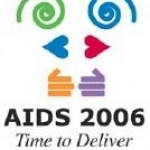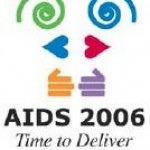There’s always a lot of anticipation at major AIDS conferences about the “late breaker” session, which presents research that wasn’t available until the last minute. At this week’s International AIDS Conference in Toronto, the session lasted three long hours because there was so much to say—and because of a controversy about a study called the Development of AntiRetroviral Therapy in Africa (DART). At issue: The dangers of applying different standards of care to groups with easy access to treatment and those without.
The DART study enrolled 799 people in Uganda and Zimbabwe who had never taken meds before. They were randomly distributed between two arms—one with continuous treatment and the other where meds were started and stopped, depending on pre-determined CD4 count thresholds. There were similar rates of death in both arms, but the risk of a serious HIV infection-related complications was 2.6 times higher in the treatment-interruption arm. So in March 2006, all patients were moved into the continuous treatment arm.
During the presentation of the DART results at yesterday’s late-breaker session, ACT UP Paris silently entered the auditorium carrying a 20-foot banner that read “SHAME” and stood between the speaker and his audience during the entirety of the talk. The protesters’ complaint was that these trials are being offered in areas of Africa where there are little or no other opportunities to receive care for a patient’s HIV infection. The patient is often forced to choose between enrolling in a study where they may or may not get treatment or receive no treatment at all for their HIV infection.
In a pamphlet distributed by ACT UP, the group demanded that the DART trial investigators “extend to participants who choose to leave [the study] the same level of care as to those who choose to stay, so as to ensure that those who stay not choose it under duress or fear for inaccess to care.”
My disagreement with the protest was that it is not the DART researchers who should bear the burden of “shame” but the entire developed world, which has turned its backs on the suffering and death in Africa and other parts of the developing world. In fact, the DART researchers should be applauded for trying to validate novel ways to include as many individuals on treatment as possible with the limited resources available. The DART trial researchers are taking action now after too many years of waiting for a response from the rest of the world.
It should be noted that since the DART trial was introduced to areas of Africa where treatment was previously unavailable, the two-year survival rate across all treatment arms is 94% and the overall mortality rate has been reduced 17 fold.
Lloyd Bailey, MD, practices at the Spellman Center at St. Vincent’s Midtown Hospital in New York City. Also check out his IAC dispatches from August 15 and 16.
Advertisement
Advertisement
Advertisement





Comments
Comments